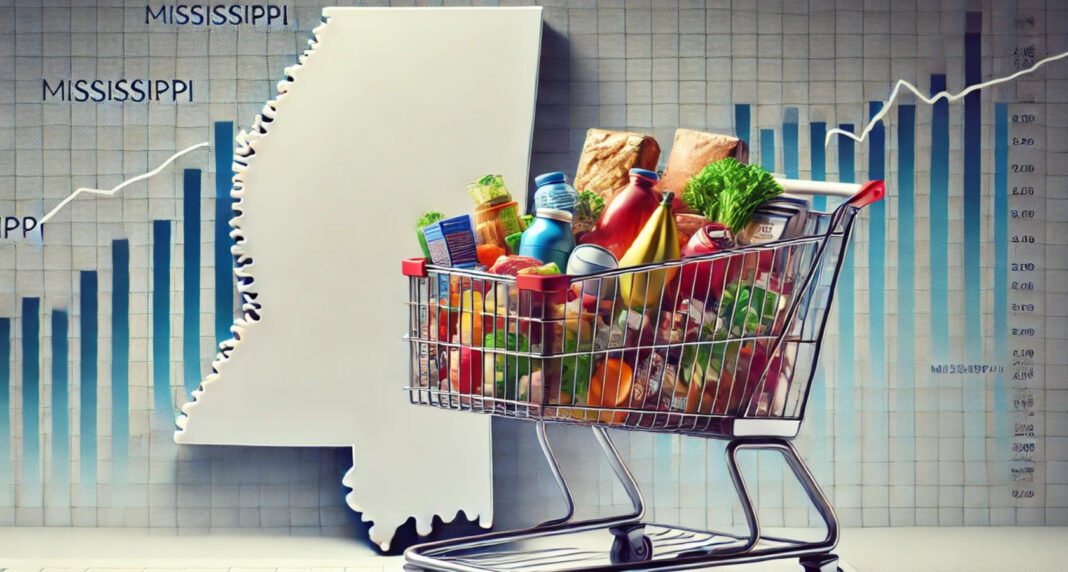Mississippi families are feeling the squeeze as rising grocery prices hit their wallets, ranking the state fifth in the nation for grocery costs. Households are spending an average of $290.64 per week, significantly higher than the national average of $270.21, according to recent data from the U.S. Census Bureau’s Household Pulse Survey. This comes as a harsh blow to a state already struggling economically, ranking 50th in median household income at just $54,203.
The pain at the checkout line is made worse by Mississippi’s 7% grocery tax — the highest in the country. This tax policy forces residents to spend even more on necessities at a time when prices are climbing across the board. Many families are left making impossible choices: buy food, pay the rent, or cover medical expenses.
The rising costs are also putting stress on local food banks, which report higher demand as more families turn to them for support. With Mississippi leading the nation in food insecurity, advocates argue that the grocery tax disproportionately affects the state’s most vulnerable residents, who are already struggling to keep food on the table.
Despite growing calls to eliminate the tax, progress has been slow. Lawmakers have floated ideas to reduce or repeal it, but no major changes have been made. Meanwhile, Mississippians are left footing the bill, both at the register and in their everyday lives.
The combination of low wages, high food prices, and outdated policies leaves many asking: Why does a state with so little wealth have some of the highest grocery costs in the nation? Without meaningful action, Mississippi’s working families will continue to bear the brunt of this economic pressure. It’s not just a numbers game — it’s a question of fairness and survival.


